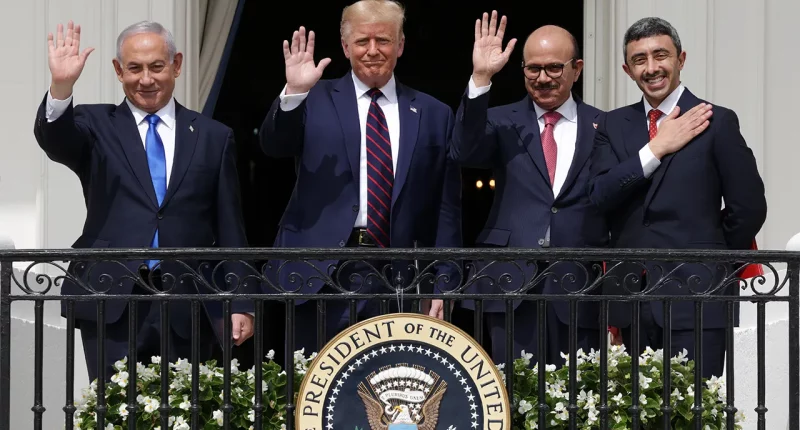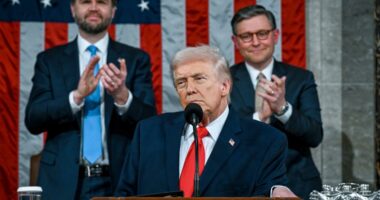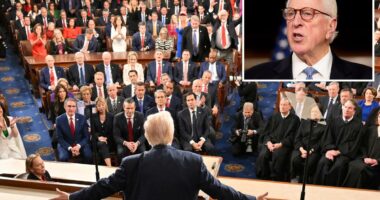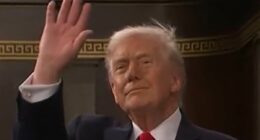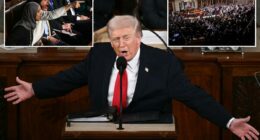Share this @internewscast.com
JERUSALEM — President Donald Trump’s notable Middle East initiative — the Abraham Accords — which facilitated formal diplomatic relations between Israel and Sunni Gulf States as well as some North African nations, might soon include additional participants, according to Steve Witkoff, Trump’s special envoy to the Middle East.
“We anticipate some substantial announcements regarding new countries joining the Abraham Accords,” Witkoff stated during a CNBC interview on Wednesday.
According to one of the most widely-read Hebrew-language news sources, Israel Hayom, Israeli National Security Advisor Tzachi Hanegbi has identified Syria and Lebanon as the primary Middle Eastern nations that might become the latest members of the Abraham Accords.
and key architect of the Abraham Accords, told Maria Bartiromo, on “Mornings With Maria” on FOX Business.
After the completion of the Abraham Accords, which normalized diplomatic relations between Israel and the United Arab Emirates, Bahrain, Morocco and Sudan in 2020, there was a growing expectation among U.S. officials and Middle East experts that Saudi Arabia would follow suit.
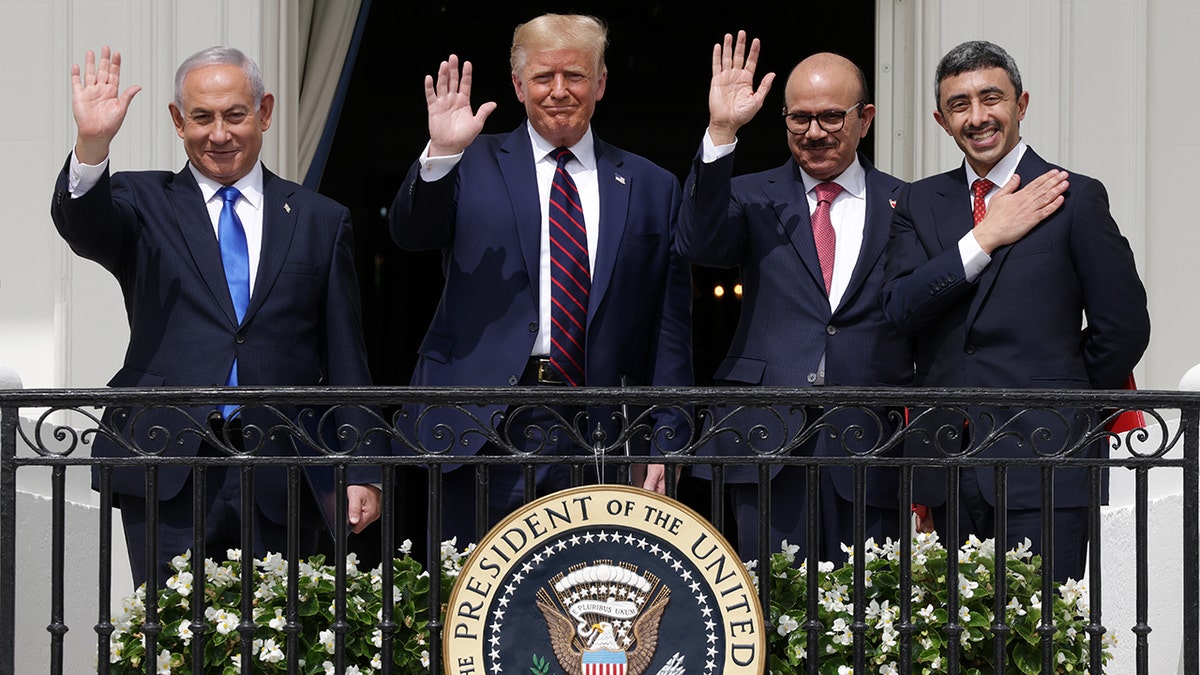
From left to right, Prime Minister of Israel Benjamin Netanyahu, President Donald Trump, Foreign Affairs Minister of Bahrain Abdullatif bin Rashid Al Zayani and Foreign Affairs Minister of the United Arab Emirates Abdullah bin Zayed bin Sultan Al Nahyan wave from the Truman Balcony of the White House after the signing ceremony of the Abraham Accords on the South Lawn of the White House on September 15, 2020 in Washington, D.C. (Photo by Alex Wong/Getty Images)
In February, Fox News Digital reported that Trump administration officials said the White House was seeking an expansion of the Abraham Accords.
The Biden administration faced criticism for failing to expand the Abraham Accords and for picking fights with states who made peace with Israel as part of the landmark agreement.
Fox News Digital reached out to the State Department, U.S. Ambassador Mike Huckabee, the Israeli prime minister’s office and the country’s foreign affairs ministry for comment.
